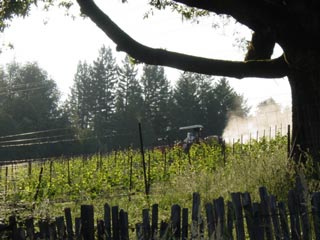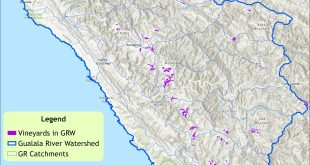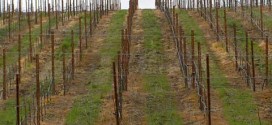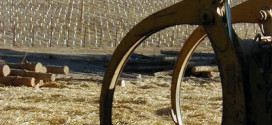The ecosystems in the Gualala River watershed are under significant pressure. More than a century of logging operations has led to the buildup of sediment and gravel in the river bed, gradually destroying the river’s capability to support coho salmon, steelhead, and other indigenous species.
Logging companies generally want forest to regenerate after harvesting timber, so habitat is eventually restored (after a verylong time). When forest land is converted to vineyard, clear cutting is followed by complete removal of vegetation, resulting in total and permanent destruction of the forest ecosystem. The stripped land sends large quantities of sediment into the river and its tributaries.
 To make matters worse, the chemical-intensive agricultural methods used by today’s wine industry pose a huge risk to the total watershed environment. Large quantities of pesticides and chemical fertilizers expose all species that depend on the river for water — including humans — to dangerous poisons. Organic alternatives exist but are not widely employed.
To make matters worse, the chemical-intensive agricultural methods used by today’s wine industry pose a huge risk to the total watershed environment. Large quantities of pesticides and chemical fertilizers expose all species that depend on the river for water — including humans — to dangerous poisons. Organic alternatives exist but are not widely employed.
Vineyard irrigation presents an additional challenge to water quality throughout the watershed. Retention dams capture rainwater to be used in the vineyards, decreasing the amount of fresh water in the river and the river flow. The subsequent over-pumping of wells to recharge reservoirs can lead to aquifer depletion and impair nearby residential water wells. Human residents downstream of the vineyards are understandably concerned. Stream diversions and surface water interception are also harmful to salmonids, greatly impeding flow and raising the temperature levels critical for their survival.
With the upward trend in economic value of the California wine industry, there are an increasing number of applications to convert coastal timberland to vineyards in the Gualala River watershed. Friends of the Gualala River and many other coastal residents are concerned that these conversions would do irreparable harm to the biological health and diversity of the watershed.
The Gualala River is already listed as impaired for both sediment and temperature under section 303(d) of the federal Clean Water Act. Much money, time, and energy is being spent by individuals, private groups, and State and Federal agencies to restore the watershed and endangered species. The proposed vineyard conversions would negate these efforts.
For more information
- Issue summary: “We all live downstream”
- Stop forestland destruction
- Retail restoration and forest mitigation
- Vineyard conversions in Annapolis
- Roessler & Martin vineyard conversions
- Artesa vineyard conversion
- Sonoma County General Plan “option 3”
- Press Articles
- Letters from experts and conservation groups
- Redwood Chapter of the Sierra Club
 Friends of Gualala River Protecting the Gualala River watershed and the species living within it
Friends of Gualala River Protecting the Gualala River watershed and the species living within it


